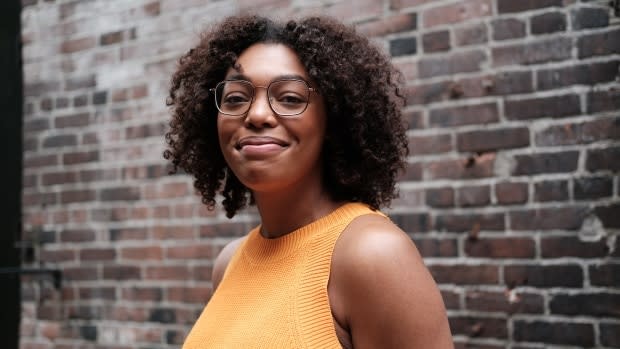Diversity consultants see flood of calls in wake of anti-racism movements

With the rise of anti-racism movements around the world, some Vancouver businesses are examining their blind spots toward race and inclusion and are hiring diversity consultants to teach them how to do better.
While some choose to get help before taking a stance on issues of race and diversity, others — like Vancouver restaurant Belgard Kitchen and North Vancouver's Denise Elliott Studios — have been shamed on social media in recent weeks and are seeking help in an attempt to restore their image.
Natasha Tony, a consultant who owns Elevate Inclusion Strategies, says people in her industry are in high demand these days, highlighting an overwhelming desire by businesses and non-profits to get it right when it comes to inclusion and diversity.
"There's this urgency right now within all organizations to get this right," said Tony, who noted her client list has tripled since early June.
She said a large part of her work is helping organizations see how internal racism can manifest itself in policies and practices. The process, she says, has no set time limit.
"We're rarely taking gigs where it's just ticking off the boxes," she said. "What we want to do is build a relationship ... and make sure that they are truly an inclusive organization."
Businesses get #blackouttuesday backlash
Although not one of Tony's clients, Belgard Kitchen hired a diversity consultant, after getting called out for a post supporting Black Lives Matter in early June by Summer Alexander, a former server.
Alexander, who is Black, says management tried to silence her and other former employees for speaking up when they saw a non-Indigenous manager wearing a Native American headdress as a costume to a staff party in 2016.
"To co-opt a movement that says that you're in support of Black lives and Black voices when you've actively silenced me ... their only Black employee at the time ... was just ironic and I couldn't not say something about it," Alexander said.
Belgard Kitchen apologized for posting a black square for #blackouttuesday — which was an Instagram movement meant to amplify Black voices — and for the the staff party incident in 2016, stating they had been "wilfully ignorant." Alexander said they also apologized to her in person.
"Our focus now is looking forward, and making good on the commitments that we've outlined on our social media," the restaurant's managing director, Reuben Major, said in a statement.

Deconstructing internalized racism
Parker Johnson, another consultant at Tony's firm, says these social media crises are often a snapshot of deeper issues.
"That one thing may be the spark, but underneath that are a whole host of other related issues that have been going on," he said.
Johnson said he and his colleagues are very aware that they are often called upon only when businesses feel the need to save face on social media.
But he said those quick fixes don't exist.
"Oftentimes, folks will make a mistake and spend a lot of time doing image management rather than doing repair," he said.
"For me, I'm interested in working with organizations that want to do something more than … decorate the windows and make the place look nice."
'A step in the right direction'
Denise Elliott Studios was caught up one of those messes, being the centre of an incident involving then-prospective bride Susie Monyo in 2017.
While looking for a makeup artist for her wedding, Monyo used a fake email and a fake name — "Becky Carlisle" — after she suspected the studio of backing out of a possible trial consultation when they learned she was Black.
"Being relatively new in Vancouver it ... stung that this was my experience planning a wedding here," she said.
It wasn't until the studio had their own #blackouttuesday mishap that the owner apologized publicly and personally to Monyo, who was quick to comment with her 2017 story after seeing a black square on the studio's Instagram feed.
"I'm just disappointed that it took what some might call public shaming ... for them to take accountability and make those changes," she said.
In a recent post, the studio said they are going to be educating their workers on "racism, racial bias, and privilege, as well as the more technical side with makeup and hair of people of colour."
Monyo thinks more needs to be done, but says it's a good start.
"The apology was a step in the right direction."



